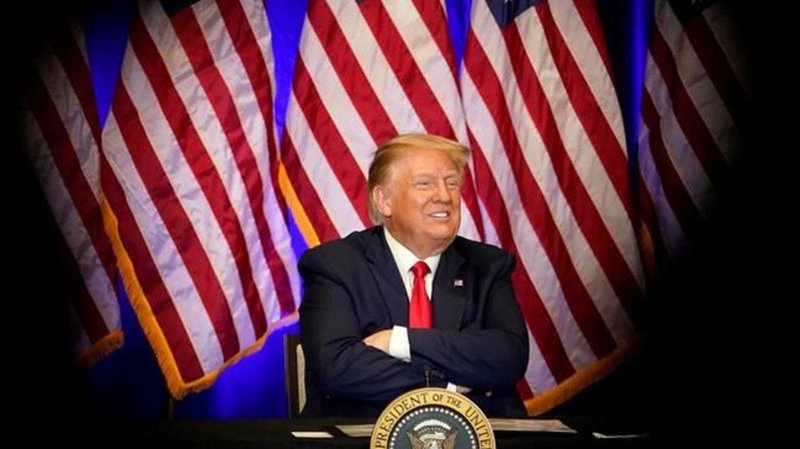
Canada’s impression of U.S. reaches lowest level in nearly 20 years: new Pew poll
WASHINGTON, Wash. — Donald Trump’s tenure in the White House and his handling of the COVID-19 pandemic have dragged Canadians’ view of the United States to its lowest level in nearly 20 years, a new poll suggests.
The Pew Research Center report released Tuesday finds a favourable view of the U.S. among only 35 per cent of Canadians surveyed, the lowest level recorded since Pew began polling north of the Canada-U. S. border in 2002.
The finding tracks an identical trend among all 13 countries involved in the poll — record lows were also recorded in the U.K., France, Germany, Japan and Australia.
“Overall, what we see in Canada fits in with the broader pattern of what we see with a number of these other key allies and partners,” said Richard Wike, Pew’s director of global attitudes research.
